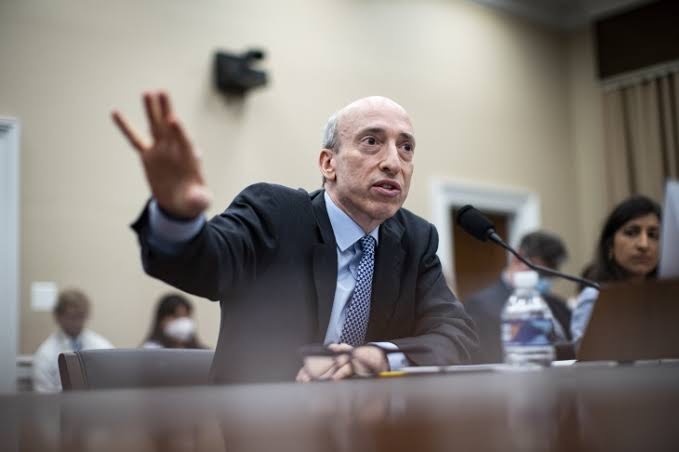The revelation sheds light on a prospective link between Gensler and Binance that predates his SEC chairmanship role, illuminating a previously unknown relationship between the two.

Lawyers representing Binance, one of the prominent cryptocurrency exchanges, and its founder Changpeng Zhao have made a claim that Gary Gensler, the current Chair of the United States Securities and Exchange Commission (SEC), offered his advisory services to Binance in the past.
CNBC reported that on June 7, the SEC filed documents containing accusations made by attorneys at Gibson & Dunn and Latham & Watkins that Gensler sought to advise Binance in March 2019. Nevertheless, it is important to remember that a prior story from The Wall Street Journal from March suggested a distinct series of events.
The WSJ claims that Binance initially approached Gensler for the advising position in 2018. Messages and paperwork from the years 2018 to 2020 showed that Gensler and Harry Zhou met for the first time in October 2018 to discuss the advice offer. Harry Zhou is the co-founder of the Binance-invested company Koi Trading. Ella Zhang was the head of Binance’s venture investing division at the time. Later, Gensler turned down the offer.
The report from The Wall Street Journal also disclosed that various private companies had approached Gensler during his tenure at MIT to seek his guidance as an advisor. However, he turned down all of these offers.

Gary Gensler became the SEC Chair after Joe Biden, the American President, nominated him in February 2021. He formally took office on April 17, 2021. Gensler previously held the position of professor of the practice of global economics and management at the MIT Sloan School of Management before joining the SEC. He served as the Maryland Financial Consumer Protection Commission’s chair from 2017 to 2019.
The SEC recently filed a lawsuit against Binance on June 5, accusing the exchange of operating illegally in the U.S. and failing to register as a securities exchange. In total, the SEC leveled 13 charges against Binance, including allegations of unregistered offers and sales of BNB (Binance Coin) and BUSD (Binance USD) tokens, as well as violations related to its staking program.
In response to the intensified regulatory scrutiny, Binance issued a statement through its Chinese social media channels on June 7, asserting its uniqueness among other cryptocurrency exchanges. The statement highlighted Binance’s transparent wallet addresses and emphasized that the exchange had never misappropriated customers’ funds.
Furthermore, Binance stated that it had not made substantial donations to political candidates or engaged in significant sponsorships with entertainment and media entities, seemingly distinguishing itself from the practices attributed to the now-defunct crypto exchange FTX.